The Navenna group – Petrokan founded in 1957 by Achille Cirilli began to operate in the port sector immediately after the end of World War II. Cirilli Achille has created 8 companies today operationally entrusted to his son Manlio Cirilli and a highly skilled management team.
In the head offices, old black and white photos perfectly render the atmosphere of labour in the port and at sea: navigating merchant ships, cranes unloading goods, anti-pollution vessels. The history of these companies is intertwined with the history of Ravenna and the history of cargo traffic in general.
Through the Navenna Maritime Agency and Forwarding House, Achille Cirilli works with the Ferruzzi Group, Italsider, Jugolinya, Baroid. There’s talk of seamless, door to door, turnkey transportation services. In 1970, Navenna works with the Persian Golf, North Africa and Eastern countries. Clients multiply and include the names of Enel, Costa Crociere, Halliburton, Eni. In 1986, there’s been further diversification: the first ever cargo storage and handling port warehouse is built. A business activity which will be conferred onto Italterminal, a company specialising in terminal operations activity.
In 1975, the Cirilli Family enters into the Petrokan Corporation, which is tightly linked to the history of the Sarom Corporation. The vessels are used to transport oil products for the provision needs of those ships and ports in the Northern Adriatic. In 1977, Petrokan acquires its first cargo ship, thus laying the basis for the foundation of its own true merchand line. This way in 1983, the connection line between the ports of Ravenna and Mariupol is inaugurated.
The port is growing, further traffic is being developed, the launch of the new line connecting the Russian port of Mariupol is a signal of great change, not only in terms of international trade balance, but also in terms of the customs and sensibility issues which have over the years become our common heritage.
Such as in the case of environmental protection: in 1986, the Group enters the environmental sector, giving life to Secomar and Ambiente Mare. The sea is very rich in terms of natural, social and economic resources. It’s an asset that must be preserved and the two new companies have this as their task.
In 1998, the Group joins the Castalia Consortium and further investments in the terminal take place. Subsequently, the Group will also participate in Sotris, another environmental sector company.


AMBIENTE MARE
Via del Marchesato, 35
48122 Marina di Ravenna (RA)
Tel: +39 0544 530152
Fax: +39 0544 531072
SECOMAR S.P.A.
Via del Marchesato 35
48122 Marina di Ravenna (RA)
Tel: +39 0544 530534
Fax: +39 0544 530846

ITALTERMINAL S.R.L.
Via Classicana, 20
48122 Ravenna (Ra), Italy
Tel. +39 0544 436511
Fax +39 0544 436552
P.IVA 00173970393 – Policy Privacy – Copyright 2020 – Tutti i Diritti Riservati – Petrokan S.p.a.
